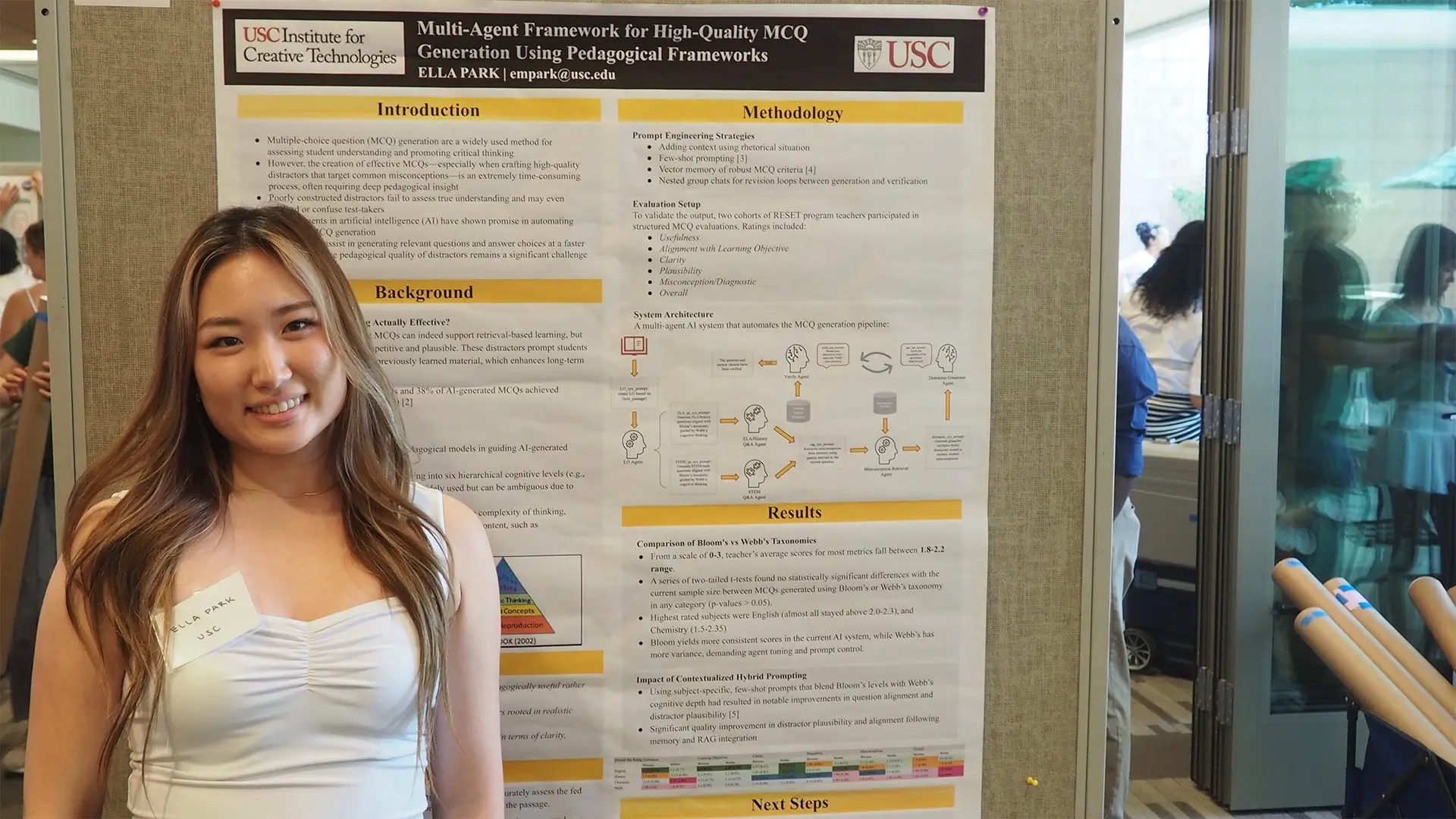Showcasing a summer of serious research, collaboration, and promise.
The SoCal REU Symposium at Harvey Mudd College marked more than just the end of a busy research season—it offered a glimpse into the future of computer science. ICT was proud to see our summer interns presenting their work alongside peers from across Southern California, sharing insights on everything from systems testing to serious games, natural language processing, and human-centered AI.
Their posters stood not just as polished summaries, but as quiet testaments to the rigor, creativity, and discipline that define this field.
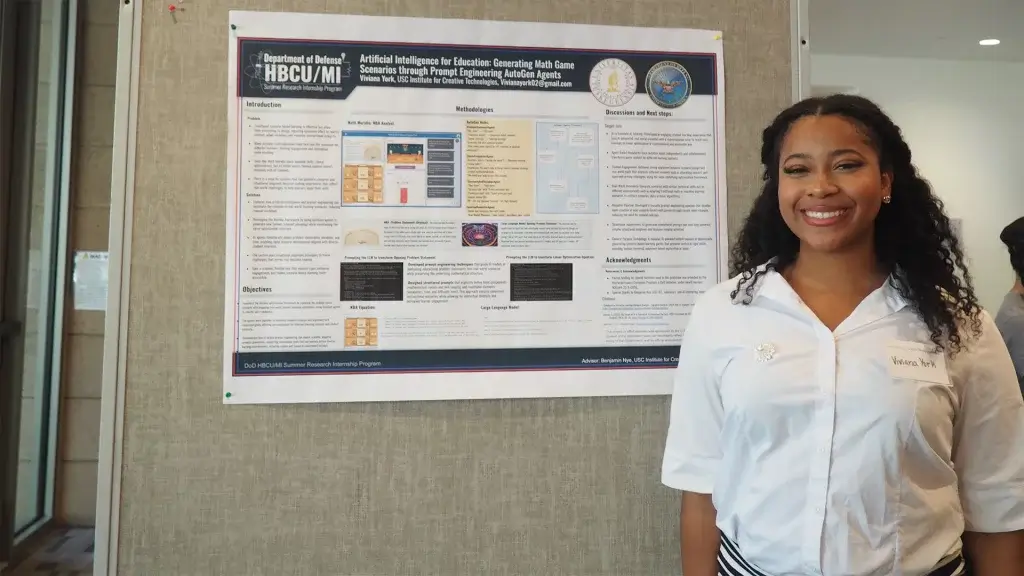
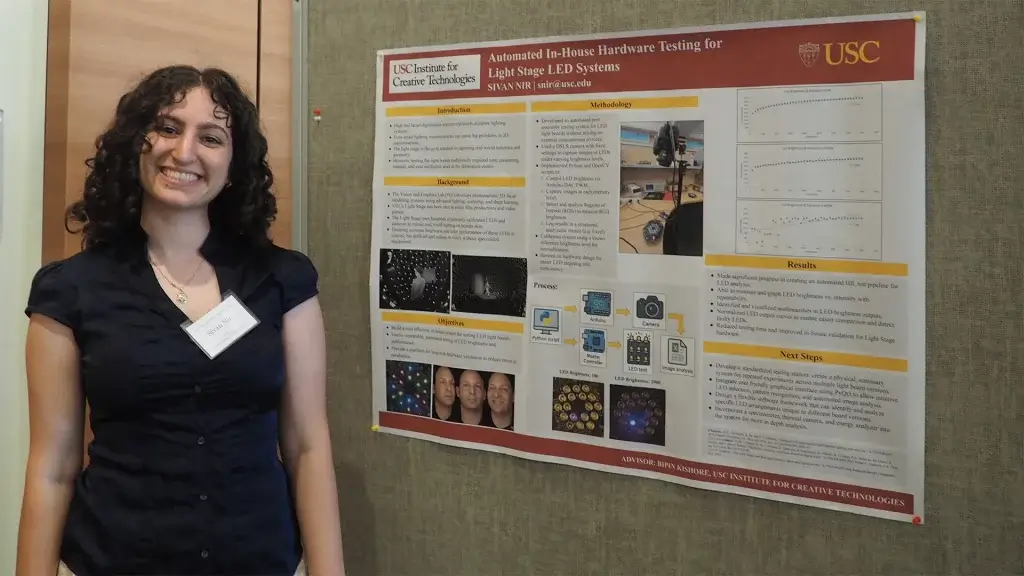
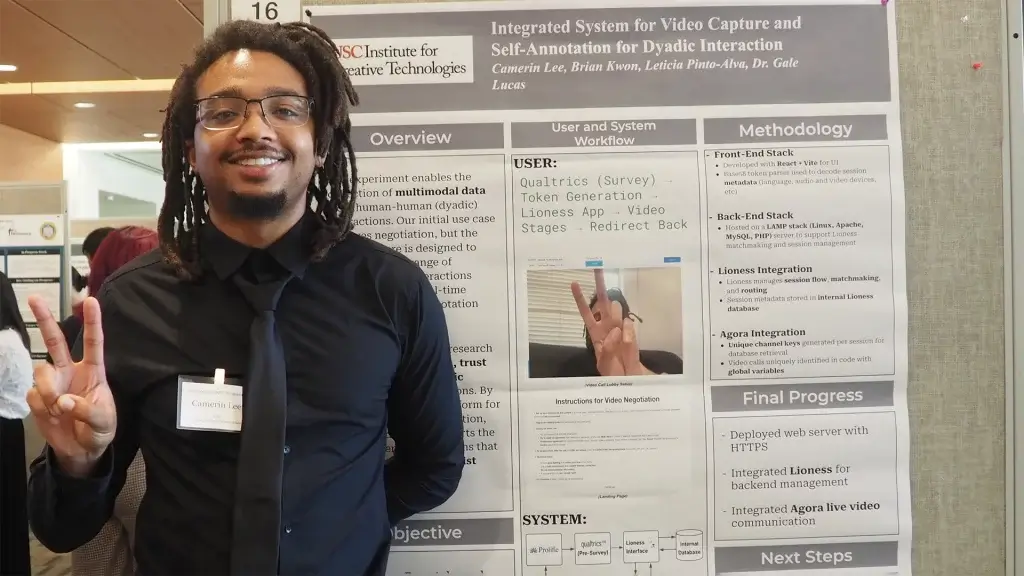
Viviana York, through ICT’s partnership with the Department of Defense HBCU/MI program, explored how AutoGen agents can be prompted to generate engaging math-game scenarios—advancing our understanding of AI in education. Ella Park, a USC Viterbi student, took on the challenge of generating high-quality multiple choice questions within a multi-agent pedagogical framework.
Sivan Nir applied an engineer’s precision to the testing of ICT’s Light Stage LED systems, building tools for in-house hardware validation. Mark Harmon, visiting from the University of British Columbia, collaborated with Dr. Gale Lucas and Deuksin (Brian) Kwon on the design of persuasive non-player characters—pushing narrative AI in new directions.
Camerin Lee contributed to the development of a video annotation system for dyadic human interaction, working with Dr. Gale Lucas, Leticia Pinto-Alva, and Brian Kwon. Kaelyn Ellison, also with the DoD HBCU/MI program, co-developed a generative AI framework for micro-tailored training in suicide prevention and resilience under the guidance of Dr. Benjamin Nye, with Kayla Carr and Joshua Shay Krichell.
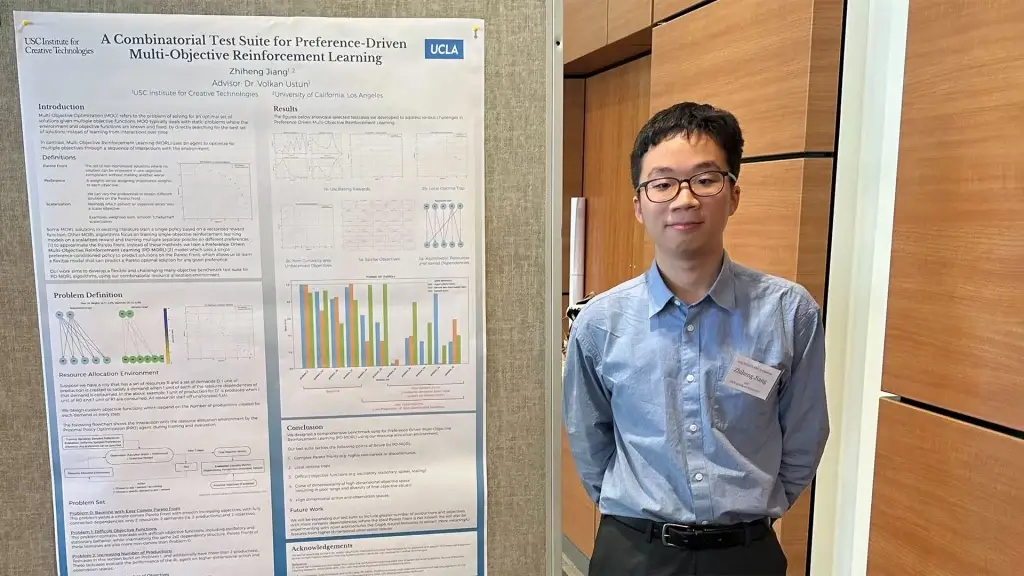
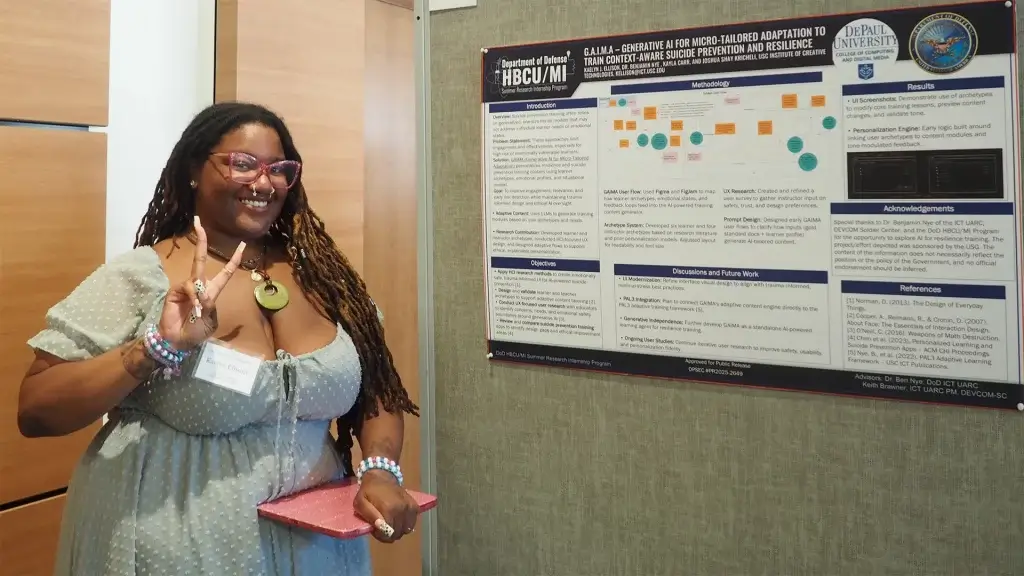
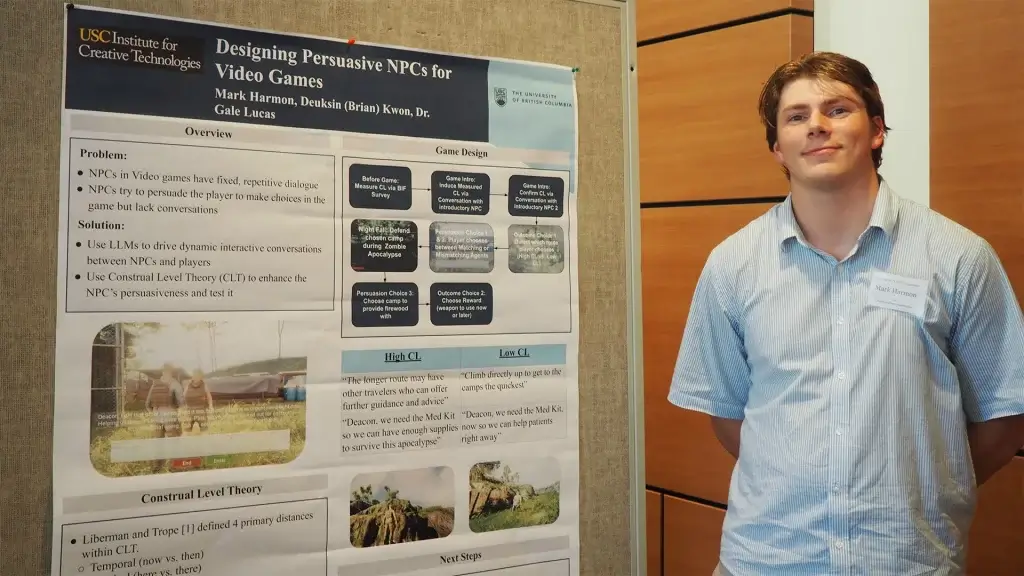
Zhiheng Jiang, visiting from UCLA, designed a combinatorial test suite to benchmark Preference-Driven Multi-Objective Reinforcement Learning (PD-MORL) algorithms, creating challenging resource allocation scenarios to advance the evaluation of preference-guided decision making in reinforcement learning.
Finally, Oscar Arenas turned to language learning, applying multi-agent systems to build grade-level Spanish translations—a small step toward more equitable AI-driven education.
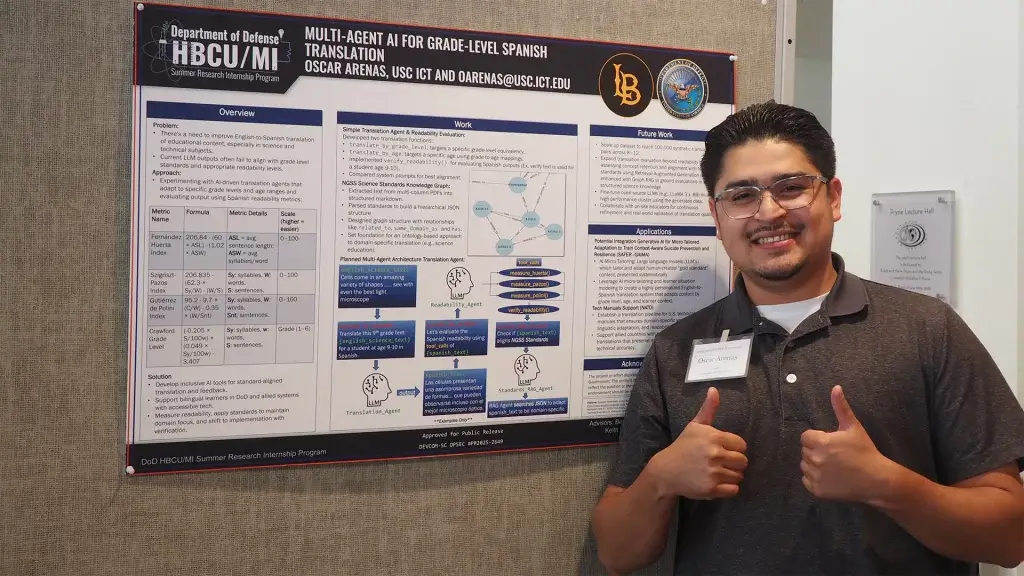
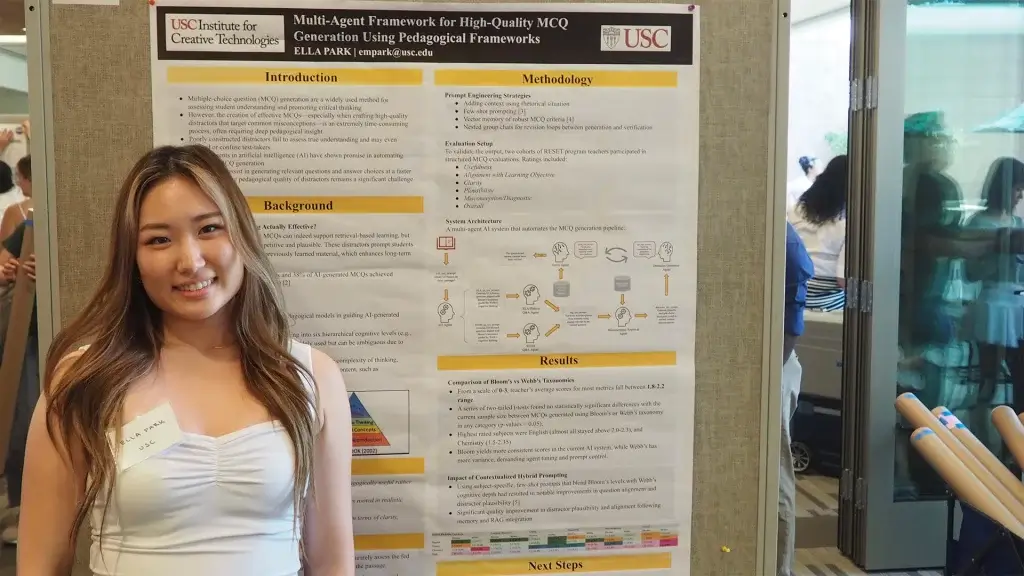
Each of these projects reflects a different corner of ICT’s mission—and each of these researchers brought their own unique vision and discipline to the task. We thank them for their commitment, their curiosity, and their energy. And we look forward to seeing where they go next.
POSTERS:
Thanks to Ella Park for her photos!
- Viviana York, AI for Education: Generating Math Game Scenarios through Prompt Engineering AutoGen Agents Dept of Defense HBCU/MI
- Ella Park, USC Viterbi, Multi-Agent Architecture for High-Quality MCQ Generation Using Pedagogical Frameworks
- Sivan Nir, USC Viterbi, Automated In-House Hardware Testing for Light Stage LED Systems
- Mark Harmon, University of British Columbia; Designing Persuasive NPCs for Video Games (w/co-authors Deuksin (Brian) Kwon, Dr. Gale Lucas)
- Camerin Lee, USC Viterbi; Integrated System for Video Capture and Self-Annotation for Dyadic Interaction (w/co-authors, Brian Kwon, Leticia Pinto-Alva, Dr. Gale Lucas)
- Kaelyn Ellison, Department of Defense HBCU/MI; G.A.I.M.A – Generative AI for Micro-Tailored Adaptation to Train Context-Aware Suicide Prevention and Resilience (w/co-authors, Dr. Benjamin Nye, Kayla Carr, and Joshua Shay Krichell)
- Oscar Arenas, Department of Defense, HBCU/MI Summer Research Internship Program, Multi-Agent AI for Grade-Level Spanish Translation
- Zhiheng Jiang, UCLA, A Combinatorial Test Suite for Preference-Driven Multi-Objective Reinforcement Learning (w/co-author Dr. Volkan Ustun)
//
